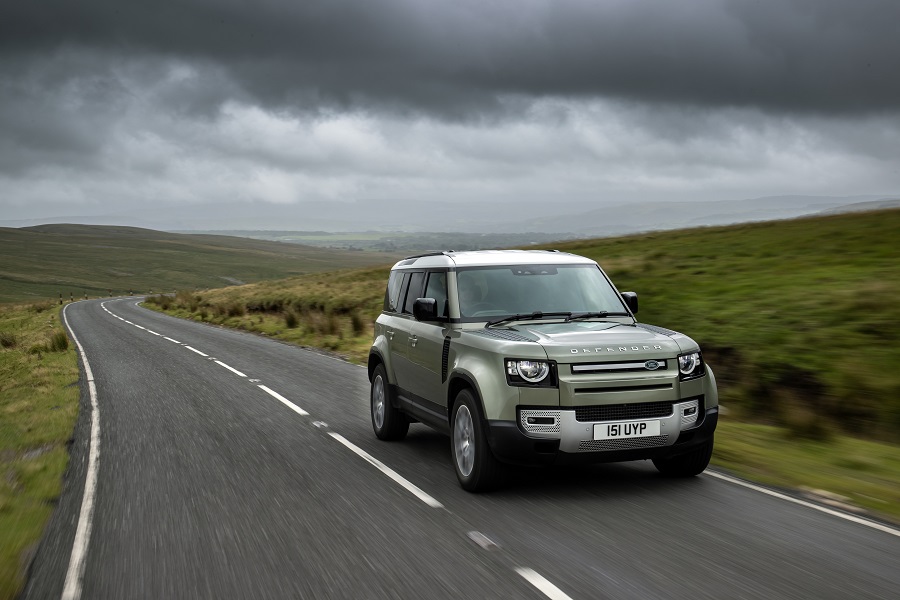

GAYDON (UK):
Jaguar Land Rover is developing a prototype hydrogen fuel cell electric vehicle (FCEV) based on the new Land Rover Defender, with testing scheduled to begin this year.
The FCEV concept is part of Jaguar Land Rover’s aim to achieve zero tailpipe emissions by 2036, and net zero carbon emissions across its supply chain, products and operations by 2039, in line with the Reimagine strategy announced last month.
FCEVs, which generate electricity from hydrogen to power an electric motor, are complimentary to battery electric vehicles (BEVs) on the journey to net zero vehicle emissions. Hydrogen-powered FCEVs provide high energy density and rapid refuelling, and minimal loss of range in low temperatures, making the technology ideal for larger, longer-range vehicles, or those operated in hot or cold environments.
Since 2018, the global number of FCEVs on the road has nearly doubled while hydrogen refuelling stations have increased by more than 20%*. By 2030, forecasts predict hydrogen-powered FCEV deployment could top 10 million with 10 000 refuelling stations worldwide.
Jaguar Land Rover’s advanced engineering project, known as Project Zeus, is part funded by the government-backed Advanced Propulsion Centre, and will allow engineers to understand how a hydrogen powertrain can be optimised to deliver the performance and capability expected by its customers: from range to refuelling, and towing to off-road ability.
The zero tailpipe emission prototype New Defender FCEV will begin testing towards the end of 2021 in the UK to verify key attributes such as off-road capability and fuel consumption.
To deliver Project Zeus, Jaguar Land Rover has teamed up with world class R&D partners, including Delta Motorsport, AVL, Marelli Automotive Systems and the UK Battery Industrialisation Centre (UKBIC) to research, develop and create the prototype FCEV.
Ralph Clague, Head of Hydrogen and Fuel Cells for Jaguar Land Rover, said: “We know hydrogen has a role to play in the future powertrain mix across the whole transport industry, and alongside battery electric vehicles, it offers another zero tailpipe emission solution for the specific capabilities and requirements of Jaguar Land Rover’s world class line-up of vehicles. The work done alongside our partners in Project Zeus will help us on our journey to become a net zero carbon business by 2039, as we prepare for the next generation of zero tailpipe emissions vehicles.”
more recommended stories
KOCHI:Kerala’s unique geography, high rainfall, and.
NEW DELHI:Renault India, a wholly owned.
THIRUVANANTHAPURAM:Škoda Auto marked 2025 as its.
GURUGRAM:In Vietnam, VinFast’s ascent to the.
- 2027 അവസാനത്തോടെ ആയിരത്തോളം അള്ട്രാഫാസ്റ്റ് ചാര്ജിങ് പോയിന്റുകള് സ്ഥാപിക്കാനൊരുങ്ങി മഹീന്ദ്ര
കൊച്ചി: 2027 അവസാനത്തോടെ ആയിരത്തോളം ചാര്ജിങ് പോയിന്റുകളോടു കൂടിയ,.
BENGALURU: Ultraviolette, an innovator in future-ready Electric.
NOIDA: TVS Motor Company (TVSM), a.
കൊച്ചി: ടാറ്റ മോട്ടോഴ്സ് ലിമിറ്റഡ് ഒക്ടോബര് 2025ല്.
KOCHI: India Yamaha Motor (IYM) Pvt..
കൊച്ചി: യമഹ മോട്ടോര് ഇന്ത്യയില് പുതിയ തലമുറ.